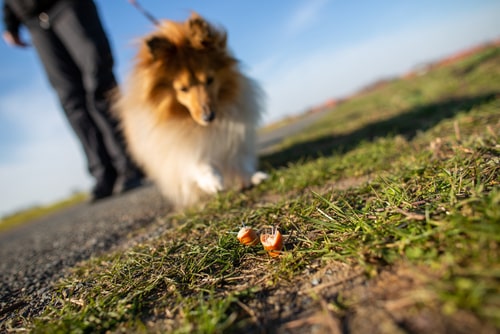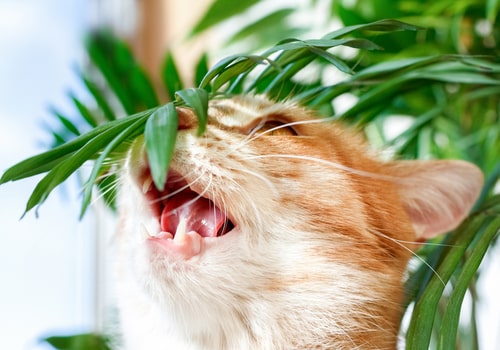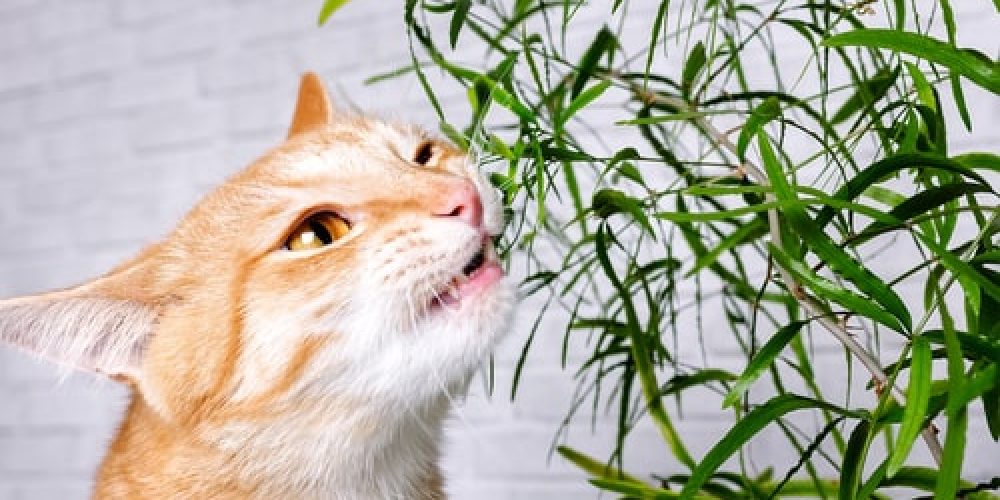Cats and dogs are naturally curious and that can lead them into all sorts of mischief. Find out what steps to take when your pet eats something they shouldn’t and how to reduce the chance of it happening.

Immediate steps to take when your pet eats something they shouldn’t
- Remove your pet or the dangerous substance from the area so there is no further contact.
- If there is any part of the substance on your pet’s fur or in their mouth, make sure to remove it as much as possible.
- If it’s a plant and you don’t know the name of it, take photos of any parts that are left.
- If it’s a food that’s been eaten, take a photo of the packaging and ingredient list if possible.
- Make a note of how much of the dangerous substance your dog or cat has eaten.
- Take note of the time that your pet came into contact with the substance.
- Contact a vet immediately with all of the information you have, and they will advise what to do next. Do this even if your pet is not showing any symptoms.
- Your vet may suggest contacting the animal poison line if the substance is not well known.
There are a few different concerns when your pet eats something they shouldn’t:
1- That it causes a blockage
2- That it’s toxic to them
It’s vital that you contact a vet as soon as possible if your pet eats something they shouldn’t. If caught quickly (within 2-3 hours), then your vet will be able to safely make your pet vomit. This will greatly reduce the chances of them developing any problems.
If it’s been longer than a few hours, then there are other options, such as monitoring and giving activated charcoal, pumping the stomach, and endoscopy or surgery to remove objects that may cause a blockage.
Our Joii team are available 24 hours a day for advice. We can help advise what to do if your pet has eaten sometthing they shouldn’t. If it isn’t something toxic, you may be able to monitor your pet at home.
Download the app and call us now if you have any questions.
How to prevent your dog or cat from coming in contact with poisons
- Check your garden for any dangerous plants. If found, remove or restrict access for your pet.
- Supervise your pet when outdoors, when possible. Don’t allow them into the garden if it’s been treated with any chemicals.
- Check all indoor plants are safe for pets before bringing them into your household, including bouquets of flowers.
- Keep your pets away while doing the garden; keep bulbs out of reach at all times; and remove any cuttings immediately. Make sure your pet does not dig up any bulbs or seeds in the garden.
- Do not leave any human food lying around in the house, especially in areas that pets can get to. Make sure your rubbish bin is sturdy and not easy to get into.
- Keep human (and animal) medication locked away.
- Keep anti-freeze or de-icer stored safely and clean up any spills straight away.
- If your dog is prone to eating things they shouldn’t, consider using a basket muzzle when outdoors. Especially in high-risk areas, such as during parties or in crowded parks where people picnic.

The most common poisonings in dogs and cats are:
- Chocolate
- Xylitol (sugar-free chewing gum and sweets)
- Grapes and raisins (and others such as sultanas, currants)
- Alcohol
- Human prescription medications, including painkillers
- Plants
- Rodenticides
- Garden products, such as rat poisons, bulbs and some fertilizers.
Read more about seasonal hazards in our autumn and winter articles











